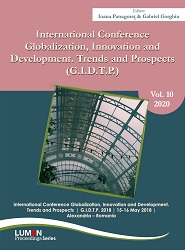Information and Communication Technologies and Education
Information and Communication Technologies and Education
Author(s): Liliana Peter
Subject(s): Educational Psychology, ICT Information and Communications Technologies
Published by: Editura Lumen, Asociatia Lumen
Keywords: technologies; communicating; information; education; management;
Summary/Abstract: The main goal of this article is the way of implementing the new technologies of informing and communicating in education. The advantages of using the new technologies in education are multiple: the reduction of time consumption, the possibility of adapting personal education programs, the possibility of fast accommodation with the changes and the new knowledge from various fields, extended interdisciplinary education opportunities. The didactic means have evolved and diversified over time from printed course support to learning programs with direct transmission or video recording on TV, to interactive multimedia information in real time with the help of the internet. In the educational field, the necessity for information and communication is realized through the registered progress that creates new opportunities and advantages in the training process. The informational and communicational technology impact over education is remarkable and it seems that this development will lead to positive effects, but will also lead additional issues. The process of replacing the real life with components, the aspects brought by the media can be called virtualization. In education, this phenomenon is manifesting when computers are used to substitute the learning experiences that were previously made in contact with the teacher or to give the chance to learn what in the past wouldn’t have been available to anyone. The specificity of the management of these structures emerges from the particularities brought by the new realities: moving the focus of the broadcasting institution from the savoir determination to the educator’s autonomy to conquer and build, through new technologies of communicating and informing. After some analysts, the introduction of new informational technologies in education has in subsidiary hidden ideologies, designed to position the social actors to the actual world. “The valorization of NTIC in the educational field dreams less of modernizing the school, than producing of a new conception of an institution where the finalities would not consist in the social emancipation of subjects, but in their incorporation in the technical, economical and capitalist complex.” (Thellen, 2002). Through the codification and standardization systems, through the promotion policies and the advertising strategies, through the fair competition, through the subsequent legal frameworks, the NTIC promoters are creating bridges for access to benefits, which, far from being accessible to anyone, are creating and deepening inequalities. Because of that, one of the preconditions of virtualization of training is to reduce gaps in creating the premises of equal access to such instruments.
- Page Range: 344-353
- Page Count: 9
- Publication Year: 2020
- Language: English
- Content File-PDF

